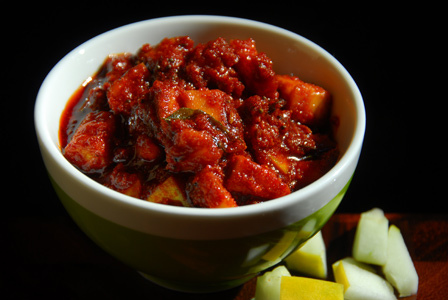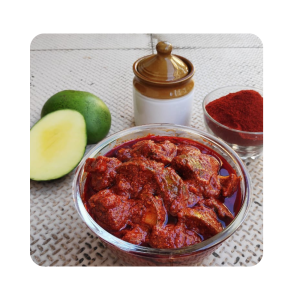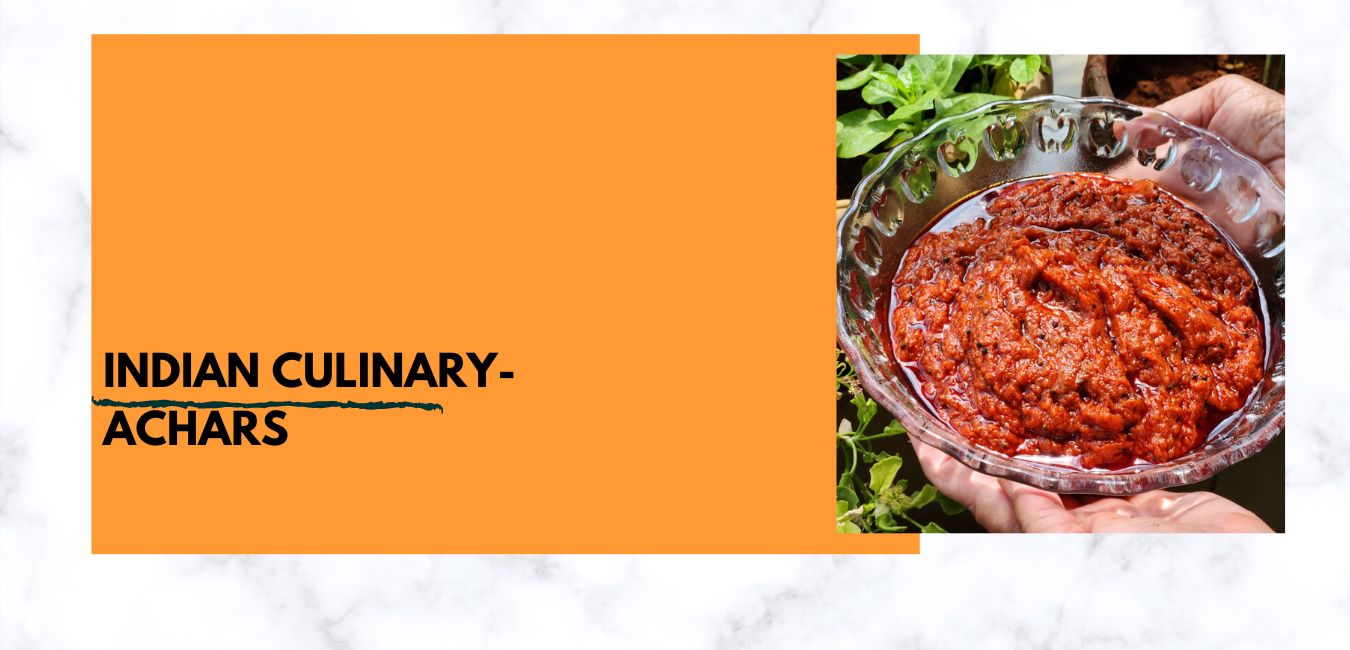India is rich in culture and tradition, food is what binds us from all the cultures. The glories of Indian food are well-known across the globe. Pickles are the epitome of any other food in India and especially south Indian pickles and in that, too Avakaya or Mango pickle is considered as King among all the pickles in South India. When it comes to food, pickles are our saviors on a day 2-day basis. Making Pickles is a celebration of its own which no one can disagree. It’s a celebration where every family member gets on their toes to work right from plucking raw mangoes to cutting, cleaning, and mixing and the highlight of this is mixing hot rice sprinkled with some sesame oil.
Pickling not only extends the shelf life of perishable ingredients but also enhances their flavors, creating a wide array of tangy, spicy, and savory condiments.
Origin of Pickles in India:

The art of pickling in India dates back thousands of years. It is believed that pickling techniques were developed as a means to preserve surplus produce, especially during the harvest season, to ensure a steady food supply throughout the year. Over time, pickling became an essential part of Indian culinary culture, with each region developing its own unique styles and flavors.
Preparation Process:
The preparation process for pickles in India can vary depending on the region, ingredients, and personal preferences. However, there are some common steps involved in making most Indian pickles and especially our Indic Living’s pickles which have adopted our Grandmothers recipe and zeal to do:

- Ingredient Selection: Pickles can be made from a wide variety of fruits & vegetables. Some popular choices include mangoes, lemons, chilies, carrots, cauliflower, ginger, garlic, and amla (Indian gooseberry).
- Cleaning and Drying: The chosen ingredients are thoroughly washed, cleaned, and dried to remove any dirt or moisture. Drying is particularly important as it helps remove excess water content, which can cause spoilage.
- Cutting and Slicing: The ingredients are then cut or sliced into desired shapes and sizes. For example, mangoes may be sliced into cubes or thin strips, while lemons are often quartered or cut into rounds.
- Salting: Salt is a crucial component in pickling as it acts as a natural preservative and enhances the flavors. The prepared ingredients are mixed with salt and left to sit for a specific period, usually a few hours or overnight. This step helps draw out moisture from the ingredients.
- Spices and Flavorings: After salting, various spices and flavorings are added to the pickles to create the desired taste profile. Commonly used spices include mustard seeds, fenugreek seeds, turmeric, red chili powder, and asafoetida. Other flavorings such as ginger, garlic, curry leaves, and tamarind may also be added, depending on the recipe.
- Mixing and Marinating: The spices and flavorings are thoroughly mixed with the salted ingredients, ensuring they are evenly coated. The mixture is then transferred to a clean, airtight container or jar.
- CP Sesame Oil: CP Sesame Oil is added to the pickle mixture as a preservative and to enhance the flavors.
- Maturation: Once the pickle is prepared, it is sealed and left to mature in a cool, dry place away from direct sunlight. The maturation period can range from a few days to several weeks or even months, depending on the type of pickle. During this time, the flavors develop and intensify, resulting in a more delicious pickle.
Preservation and Shelf Life:
Pickles in general have a long shelf life and especially Andhra pickles have a long shelf life due to their high acidity and oil content, which acts as a natural preservative. When stored in a clean, airtight container, away from moisture and sunlight, Andhra pickles can last for several months or even up to a year.

Cultural Significance:
Andhra pickles are not just a culinary delight; they also hold cultural significance. The process of making Andhra pickles is often a family affair, with recipes passed down through generations. Pickle-making is considered an art, and families take pride in their unique recipes, flavors, and methods.
Happy Pickling!!!
This recipe is dedicated to all those ardent pickle lovers…
Indic Living has some best Indian Pickles made in authentic Grand Ma style. Buy Here
